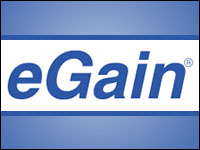
You invest in a state of the art CRM platform. You spend months tailoring it to the needs of your organization. Weeks of data mapping and migration tests ensue. You plan, build and deliver rigorous user education. Sales leaders are excited. Salespeople … don’t use it.
Or at least, they use it to the minimum degree that is required by the organization.
In sales learning and development, we face a similar challenge.
We’ve all seen it happen: A group of key employees attend an intensive sales training program and then, once the session ends, fail to apply much of what they learned. Why does this happen?
One reason might be lack of demonstration of how to use what was taught. Another is a shortfall in post-training skill reinforcement. Reinforcement of learning is commonly overlooked — but it’s critical to the success of a learning implementation and ensures maximum return on investment for an organization. Most organizations today have invested in CRM tools. These platforms can play a vital role in ensuring skills are applied on the job.
More Than a Database
The hard truth is that CRM systems and sales training often exist in parallel, without being integrated. This results in missed opportunities to improve overall sales performance through increased application of skills and adoption of CRM tools.
CRM software should be more than a database of information; when leveraged and integrated properly, effective use of CRM programs leads to increased revenues through the creation and application of customer knowledge. To promote sales excellence, it is vital that CRM integration is part of the organization’s learning strategy. When this happens, there is a higher likelihood of creating more mutually beneficial customer relationships, resulting in:
- Higher win rates: When sales professionals are trained to create positive customer interactions that satisfy client needs, they are likely to succeed at closing more deals.
- Shorter sales cycles: When a client is provided superior service and information, sales cycles are shorter with higher purchasing confidence.
- Expanded deal size: As clients enjoy efficient and proactive service with sales professionals, they build trust in the organization’s ability to satisfy their needs, leading to potentially larger deals.
- More satisfied sales teams: Teams that are successful at forging mutually beneficial relationships with their clients are often more satisfied with their jobs and confident in their ability to execute sales excellence.
An integrated approach to CRM and sales training reinforcement has proven successful for many businesses. For example, technology platforms like Salesforce CRM offer, through partner vendors, embedded applications, like sales call planners and account planners. This allows salespeople to work within their CRM platform to get the reinforcement they need.
Further benefits of an integrated approach include:
Apps and Plug-Ins
For sales leaders, ensuring that their teams are responsive to customers’ needs and are equipped with the right knowledge to be successful is critical. Complementary CRM tools that enforce previously completed training aid sales leaders in these efforts. Specifically, CRM apps and plug-ins allow sales leaders to:
- Gather insight into team strengths and knowledge gaps, enabling more targeted coaching conversations. By reviewing notes and metrics captured by the plug-in, sales managers can better identify the performance gaps of employees, allowing for more direct coaching.
- Minimize productivity loss during turnover by allowing for more easy data transfer from previous salespeople. Tools like call and account planners house specific customer information, enabling seamless knowledge transfer in the event of employee turnover.
- Proactively provide recommendations for driving the sales cycle forward to close. By reviewing call preparation and notes, sales leaders are able to help sales professionals identify strategies to help close the sale.
When integrating sales methodologies and CRM, adhere to these best practices:
- Set standards: Establish clear and measurable usage guidelines.
- Communicate clearly: Communicate the availability of the tool with a focus on benefits to the salesperson.
- Focus on the customer: Assess how the integration will benefit your customers.
- Imbed into coaching: Application of any tool will only be maximized if it is used as part of a coaching process and regularly reinforced by the sales management team.
- Share information: Make sure that whatever you decide to integrate can be shared across your organization with account teams, not only those who use your CRM platform.
With the increasingly competitive market, companies striving to meet customer expectations must leverage available tools for sales success. The individual benefits of sales training and CRM are outweighed by the continual coaching and structured sales guidance created by integrating the two. Long-term success is improved by cultivating valuable relationships between sales professionals and clients — made a reality by understanding the intimate needs of customers to not only meet, but exceed, expectations through the training and tools necessary.














































Social CRM
See all Social CRM